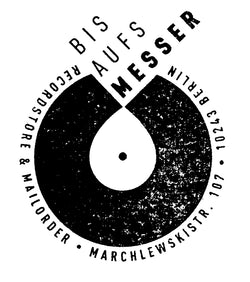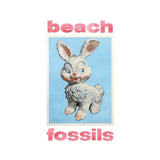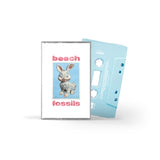Over the past fifteen years, Beach Fossils have steadily built on their status as one of the most definitive and enduring bands of the 2010s New York underground, reaching new listeners as their sound has evolved from Dustin Payseur's DIY solo project to an influential four-piece dream-pop band, self-produced, self-managed, and self-released. Bunny represents strength through vulnerability. "Bunny" continues the stunning evolution of the Beach Fossils sound, drawing elements from the jangly melancholy of the "What a Pleasure" EP (2011), the dark, post-punk-inspired tracks of "Clash the Truth" (2013), and the lush arrangements of "Somersault" (2017), "sharpening their dream-pop instincts with each successive release" (INTERVIEW). Inspired by the psych-pop of early Verve and Spiritualized albums, as well as influences like The Cure, Wire, the Byrds, and the Velvet Underground, "Bunny" was produced and recorded by Payseur himself, with Lars Stalfors (St. Vincent, Soccer Mommy, Lil Peep) serving as mixer. Payseur notes that during the creation of this album, more emphasis was placed on a stronger focus on pop structures. "When I wrote the first record, there were no choruses, just instrumental guitar parts between the verses. This is the first record where I consciously thought about writing a chorus." He is supported by band members Tommy Davidson (guitar), Jack Doyle Smith (bass), and Anton Hochheim (drums). "Bunny" is the band's most vibrant and personal work to date. The songs deal with depression, love, adventures, loss, mistakes, New York City, friendships that come and go—a melange of grainy pieces in the process of self-discovery. Payseur's collage-like lyrics communicate through tone and mood as well as narrative; New York poets like Frank O'Hara, Ted Berrigan, and Anne Waldman are influences, as is the Tao Te Ching.
Cookies
Wir verwenden Cookies. Viele sind notwendig, um die Website und ihre Funktionen zu betreiben, andere sind für statistische oder Marketingzwecke. Mit der Entscheidung "Nur essentielle Cookies akzeptieren" werden wir Ihre Privatsphäre respektieren und keine Cookies setzen, die nicht für den Betrieb der Seite notwendig sind.
Essenzielle
Statistik & Marketing
Alle akzeptieren
Nur Essentielle Cookies akzeptieren
Individuelle Cookie Einstellungen
Speichern & schließen
Essenzielle
Essenzielle Cookies ermöglichen grundlegende Funktionen und sind für die einwandfreie Funktion der Website erforderlich.
Informationen anzeigen
Statistik & Marketing
Marketing-Cookies werden von Drittanbietern oder Publishern verwendet, um personalisierte Werbung anzuzeigen. Sie tun dies, indem sie Besucher über Websites hinweg verfolgen.




